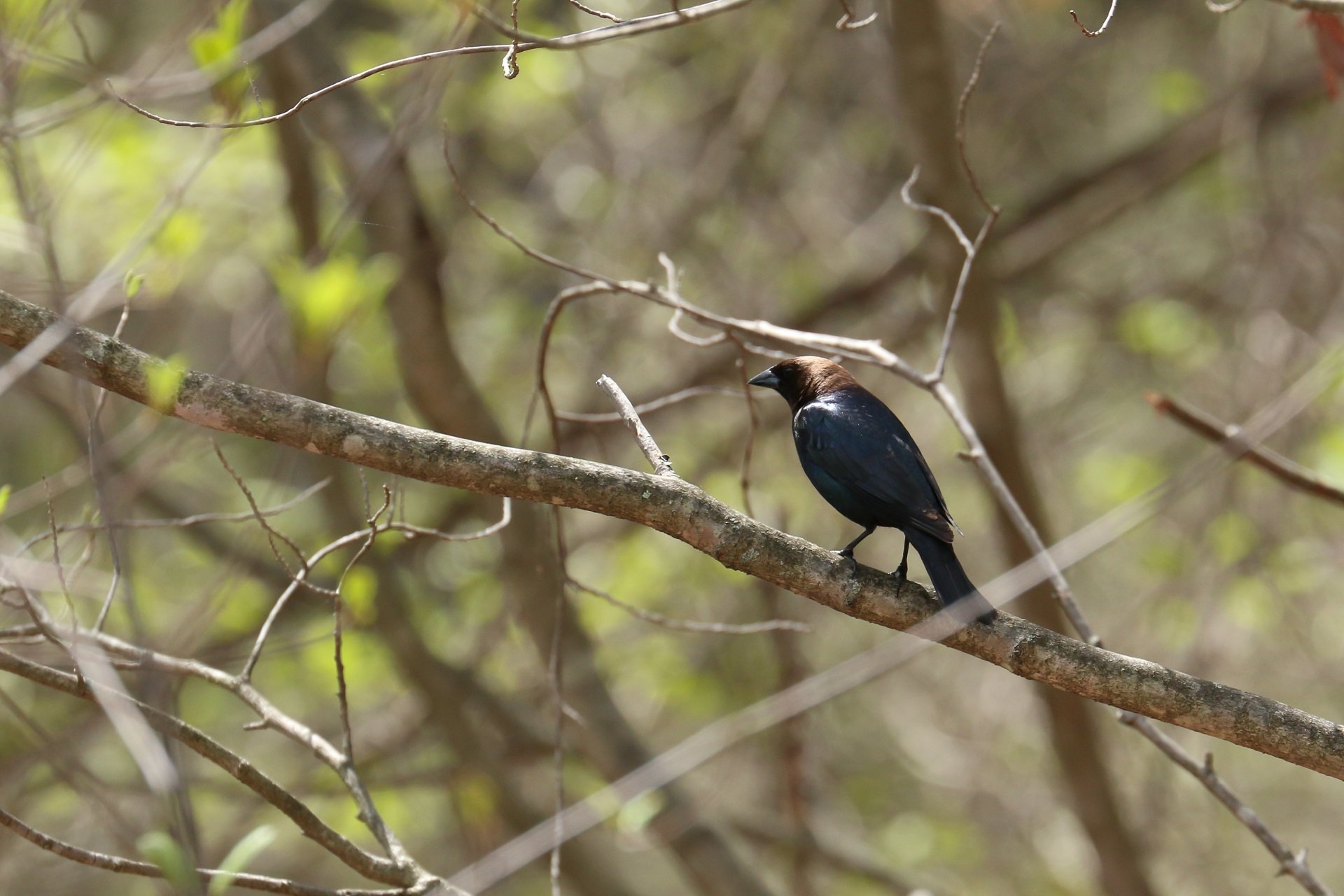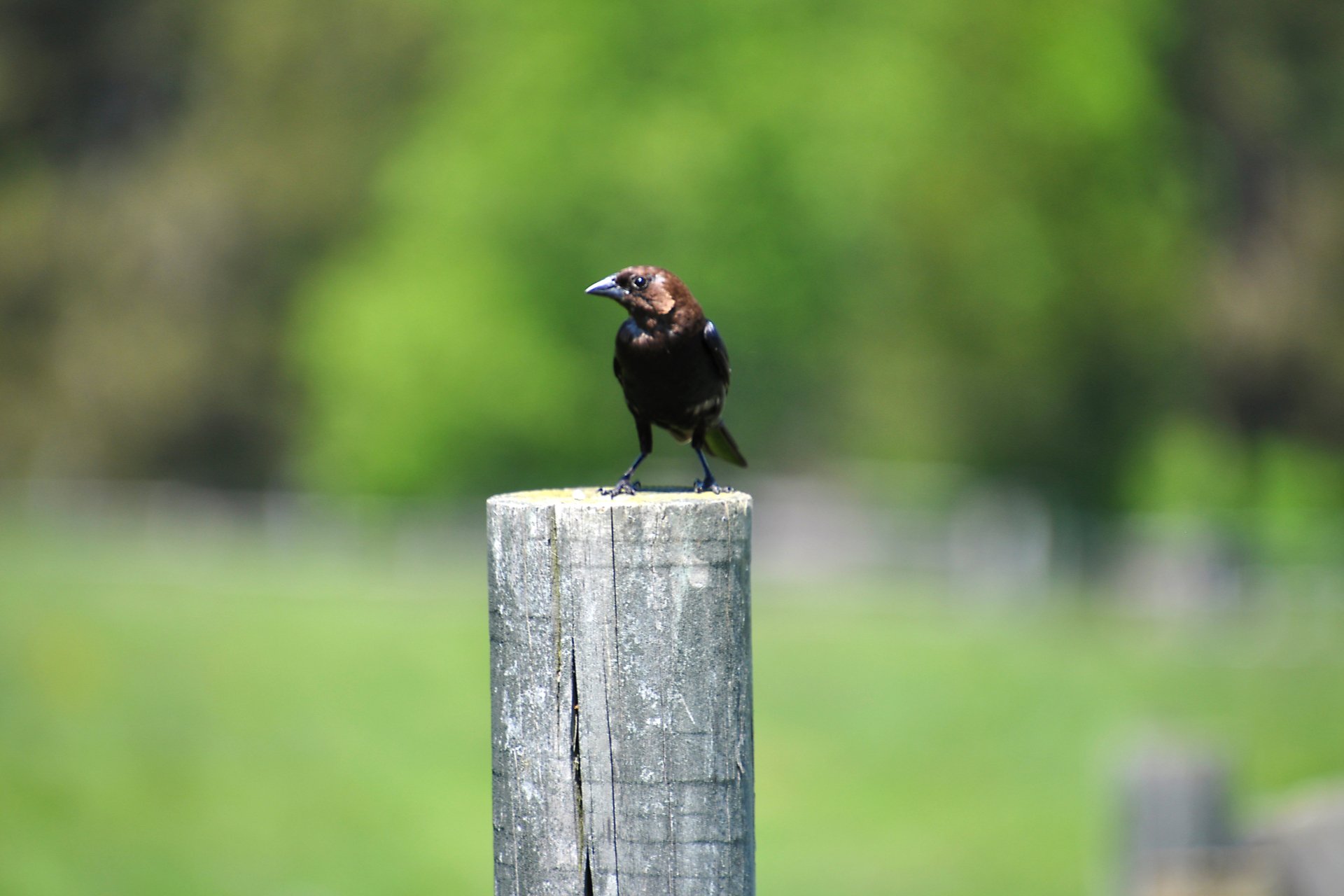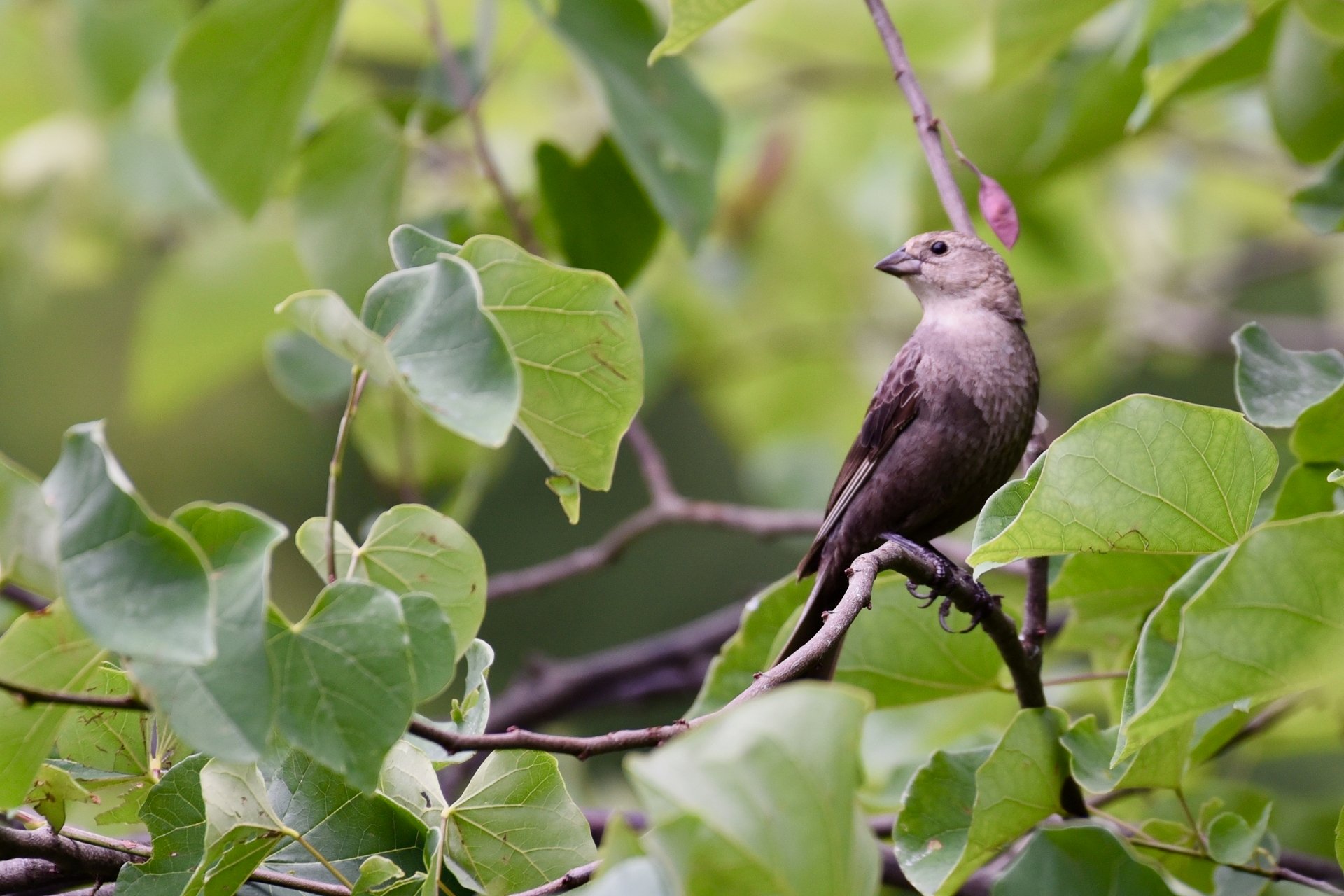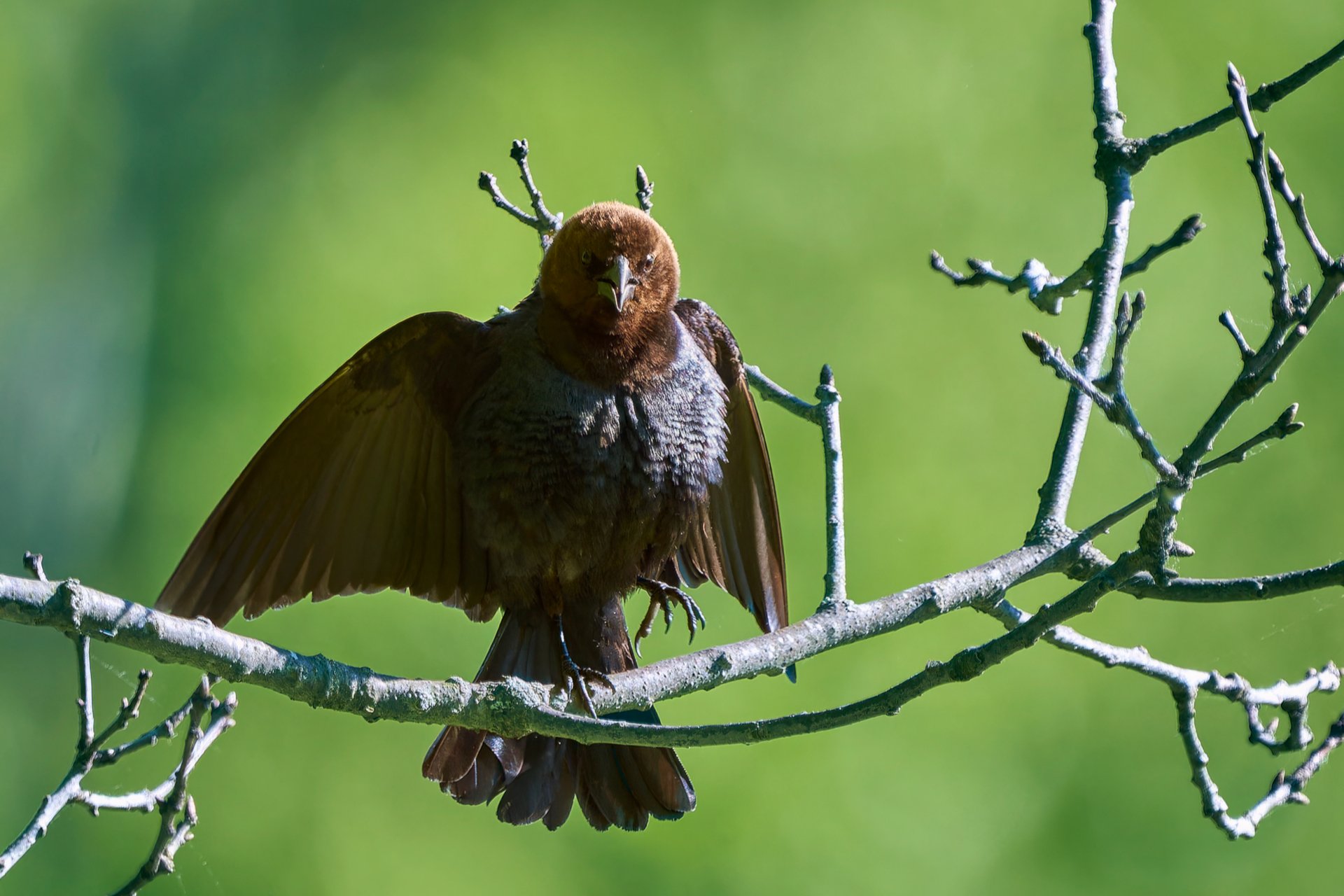Birds in Massachusetts
Brown-headed Cowbirds
Cowbirds are members of the blackbird family with an unsavory reputation. This species is a nest parasite—female cowbirds never build nests of their own, instead laying their eggs in the nests of other species.
Despite the species’ odious habits, the satin sheen and bubbling song of a male brown-headed cowbird in the springtime can be a pleasant addition to your backyard community.
How to Identify Brown-headed Cowbirds
The male brown-headed cowbird is shiny black all over, save for his head, which is (as might be expected) chocolate brown. Female Brown-headed Cowbirds are drab gray-brown all over, with faint or no streaking. She can be recognized by her stout build, strong, pointed bill, and slightly notched tail.
Brown-headed Cowbird Behavior
Brown-headed Cowbird Eggs in Co-Opted Bird Nests
Brown-headed cowbirds lay their eggs in the nests of other birds, such as finches and warblers. These “host” birds may eject the cowbird egg, abandon the nest, or raise it as their own. A baby cowbird often grows more quickly than its nestmates, crowding them out of the nest and eventually dwarfing its adoptive parent.
Any small songbird seen feeding a much larger fledgling has become host to a cowbird.
What Do Brown-headed Cowbirds Eat?
Adult cowbirds usually forage by walking along the ground, picking at seeds and insects. Seeds make up about half of their summer diet and most of their winter foods, rounded out by insects.
What Do Brown-headed Cowbirds Sound Like?
The song of the male, which is often given repeatedly as the male pursues a female from ground, to tree, and onward, is a short, bubbly glub-GLEE!
Brown-headed Cowbird Song
Brown-headed Cowbird Call
Where Can I See Brown-headed Cowbirds?
Brown-headed cowbirds are widespread and stable or increasing as breeding birds in Massachusetts. They often form flocks and feed in agricultural areas during fall and winter, but winter counts of this species have dropped significantly in Massachusetts over the past few decades.
How Mass Audubon is Supporting Birds in Massachusetts
Mass Audubon works at our wildlife sanctuaries and beyond to ensure that the nature of Massachusetts continues to thrive. By scientifically monitoring Massachusetts birdlife, Mass Audubon informs important conservation decisions and launches targeted initiatives to help at-risk species. In addition, fostering healthy habitats, supporting native species, and educating people about the importance of nature conservation is critical to our success. Learn more about our work
How You Can Support Birds in Massachusetts
Mass Audubon supports birds like the Brown-headed Cowbird every day, but we couldn’t do it without the support of our 160,000+ members.
Help support Brown-headed Cowbirds, and birds like them, by becoming a member today.
Upcoming Bird Programs
North Shore Winter Bird Walk
-
Ipswich River Wildlife Sanctuary, Topsfield
-
Tuesday, February 17
9:00-11:00am
Adults
Owls of Massachusetts: Research & a Visiting Owl
-
Online
-
Tuesday, February 17
7:00-8:30pm
Adults
Birding by Van
-
North River Wildlife Sanctuary, Marshfield
-
Wednesday, February 18
8:30-11:00am
Adults
Stay Connected
Don't miss a beat on all the ways you can get outdoors, celebrate nature, and get involved.






